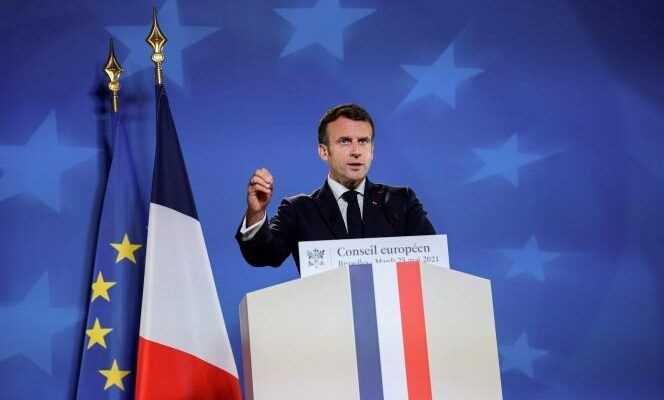Emmanuel Macron did not wait for the European recovery plan of 750 billion euros to be operational to talk about the rest. The Twenty-Seven had not yet agreed on its architecture that the French president was already talking about the subject. “The epidemic is resuming. It is very likely that we will have to redefine an orchestrated response ”, he declared on October 16, 2020, at the end of a European summit.
On March 25, after a new meeting of European heads of state and government, Mr. Macron returned to the charge: “After the first wave of Covid-19, the European Union [UE] has brought a response to the height. (…) Faced with the second and third waves, we will undoubtedly have to complete this answer. “
The French president wants to get things done before the 2022 presidential election, especially since the first half of that same year, in the midst of the electoral campaign, therefore, Paris will take over the rotating presidency of the Council of the EU. Basically, Macron, like the president of the Italian council, Mario Draghi, is worried about a new drop in Europe, while the United States is injecting hundreds of billions of dollars into its economy. And calls for a reaction from the Twenty-Seven. “At the March Council, they planted seeds”, sums up someone close to the Elysee.
At this stage, Paris and Rome do not say more about the form that this new European plan could take. “There is not yet an object defined at European level. We open the political and intellectual debate ”, explains Clément Beaune, Secretary of State for European Affairs. But one thing is certain, it cannot be a replica of the recovery plan on which the Twenty-Seven spent so many hours negotiating, before agreeing on the principle of common debt and the distribution of grants to the countries most affected by the pandemic. The “frugal” (the Netherlands, Sweden, Denmark, Austria and Finland), who were opposed to it, will not want to hear about it.
Semiconductors, hydrogen or health
In this context, rather than asking for new aid, Paris and Rome prefer to evoke the need for Europe to invest massively, by 2030, in strategic sectors such as semiconductors, hydrogen or health. .
Some, like Bruno Le Maire, praise the model of “alliances”, which allow several Member States to work together on specific projects, by escaping the binding rules of the Commission on State aid. “Tomorrow, semiconductors will be as important as oil in the 20th centurye century. We will need it everywhere. We cannot depend entirely on Asian countries ”, explains the Minister of the Economy, who prefers intergovernmental projects to community instruments, more difficult, from his point of view, to set up.
You have 45.77% of this article to read. The rest is for subscribers only.
